Jadav Payeng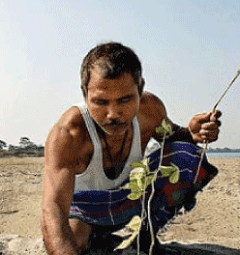
IntroductionEnvironmentalist and forestry laborer from Majuli, Jadav "Molai" Payeng is popularly known as Forest Man Of India. He was born in the Assamese Mising Tribe in 1963. He turned the sandbar of the Brahmaputra River into a protected forest over many years by planting and caring for trees there. After him, the forest was named Molai forest. It spans around 550 hectares and is close to Kokilamukh of Jorhat, Assam, India. He received India's fourth-highest civilian distinction, the Padma Shri 2015. CareerWhen Payeng was 16, he experienced a severe drought and flood in the Majuli River. The largest river island in the world is located in India's Brahmaputra river. He encountered thousands of snakes that had died from heat following floods and were lying on the sand. He planted approximately twenty trees and bamboo saplings in the bare sandbar in 1979 when he was 16. He began working in the forest and participating in social forestry the same year. When the Golaghat district began a project to plant 200 hectares of trees at Aruna Chapori, 5 kilometers from Kokilamukh in the Jorhat district, for five years, he actively worked there as a worker, and even when that time was up, he continued to be there and plant trees on his own. To turn the space into a forest, he took care of the plants and continued to plant new trees on his own. After 40 years of hard work, his plantation, now known as Molai forest in his honor, encompasses roughly 1390 acres. 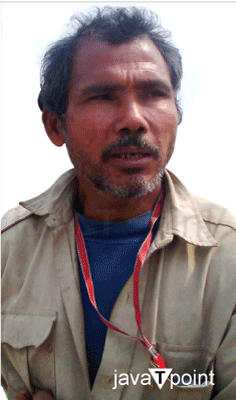
Jadav Payeng quit school to devote his time to creating the forest. The forest, which became known as Molai forest, is now home to various creatures, including over 100 deer and rabbits, Bengal tigers, Indian rhinoceroses, and over 100 deer. Monkeys and other bird species, such as numerous vultures, can be found in the Molai forest. Many trees exist, such as the himolu, valcol, Arjun, ejar, goldmohur, koroi, and moj. Over 300 hectares are covered in bamboo. The elephant herd, which visits and stays for roughly six months, constitutes one of the more frequent species in this area. In the past few years, they gave birth to 10 calves within the jungle. When a photojournalist fell upon Payeng, saw him sowing his forests, and wrote an article on him in 2008, it changed Jadav's life in early 2007 and 2008, respectively. Next came forest department authorities. Aruna Chapori, which is around 1.5 kilometers from the forest, was injured by a herd of 115 elephants that had fled into it after causing damage to its property. The forest department authorities went in search of the herd. Since then, the department has frequently visited the location after the forest officials' surprise at discovering such a sizable and dense forest. Following this, there were numerous instances of poaching, but Jadav eventually got in touch with and informed the department's administrators. Officials swiftly seized the different items the poachers used to capture the animals. 
Molai has been recognized with numerous accolades for his extraordinary accomplishments and TED presentations due to saving this forest. He has practical suggestions for preventing erosion on Majuli Island, such as planting trees of coconuts that develop straight and stabilize the soil when planted close together. As a result, this would aid India's economy and combat global warming. When a photojournalist came upon Payeng in the autumn of 2007 while fertilizing the forest and wrote a story about him, Jadav's life changed. He quickly caught the interest of the Indian government, then that of the entire nation, after receiving numerous prizes for his amazing accomplishments and delivering TED presentations. He has practical suggestions for preventing erosion on Majuli Island, such as growing trees of coconuts that develop straight and stabilize the soil when planted close together. This would help battle climate change and benefit India's economy. Deforestation for the sake of profit, which leaves the flora and wildlife subject to human greed, is Payeng's biggest concern for his forest. He thinks all living things, including people, are animals and should respect nature and be frugal to survive. The woodland was named "Molai" in honor of Payeng's environmental activity and daily commitment to planting trees. The children's book Jadav and the Tree Place, which describes how Jadav created a jungle currently home to wild creatures, was also inspired by Jadav's tale. Due to him, award-winning documentaries have been made, and now tourists worldwide flock to view the Molai forest. His motivational tale is also covered in ecological lessons at schools nationwide. 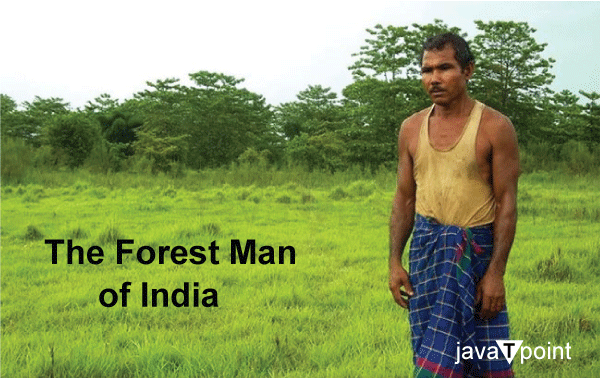
Payeng was recognized in 2012 by Vice-Chancellor Sudhir Kumar Sopory of Jawaharlal Nehru University as "The Forest Man of India." The Balipara Foundation later presented Jadav Payeng with the "Ecological Restoration Award" in 2013. In 2015, he received the Padma Shri award for outstanding humanitarian efforts. He received the Karmayogi Award in 2020 in New Delhi for his remarkable contributions to environmental conservation. The Molai Forest, a documentary made by Jitu Kalita, came out in 2012. Aarti Shrivastava produced the documentary "Foresting Life," based on his life, in 2013. In 2013, William Douglas McMaster's acclaimed documentary "Forest Man" was released. In the children's book "Jadav and the Tree-Place," written and drawn by Vinayak Varma, he plays a supporting role. 2018 saw the international conference 'Green Earth: A Panoramic View' held by the Department of Botany at the B. N. Bandodkar College of Science. The chief guest was Padma Shri Jadav Molai Payeng. He described his involvement in the creation of Moloi Forest. A straightforward individual who believes that "Love nature, and nature will love you back." He was given a standing ovation, which demonstrated how inspirational he was to all. He exemplifies bravery, commitment, and passion; he is a living illustration of how one person can influence the environment for the better. We take away from him to be strong and live our goals. 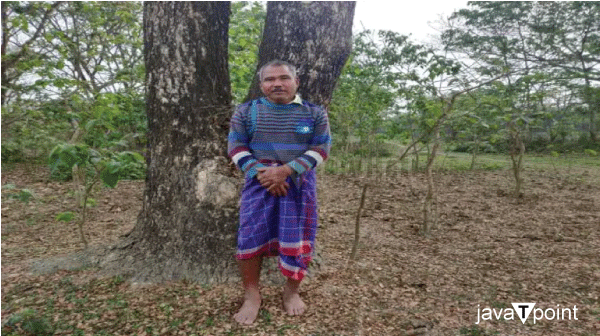
Which country has the largest manufactured forest in the world?The world's largest artificial forest is already located in China. The Great Green Wall is the name given to the woodland. This artificial forest was created to combat climate change and desertification. Over 42% of China's landmass will be covered by this forest in the future. Since 2010, ordinary citizens have grown billions of trees around China, making it the world's largest forestation program. On the other hand, this represents the collective labor of a whole people. The Molai Forest has been forested due to one man's work alone. It is distinctive because of this. Family, Class, and ReligionJadav Payeng was born into a middle-class family in the Hindu Missing Tribe of Assam. He has a daughter, two sons, and a wife named Binita. He and his loving family are in a little cottage in the woods. On his property, he keeps cattle and buffalo, and his sole source of revenue is the milk sales. In a 2012 interview, he admitted that tigers in the jungle had killed over 100 of his cattle and buffaloes. Still, he blamed humanity for large-scale forest devastation and encroachment as the main reason wild animals suffer. 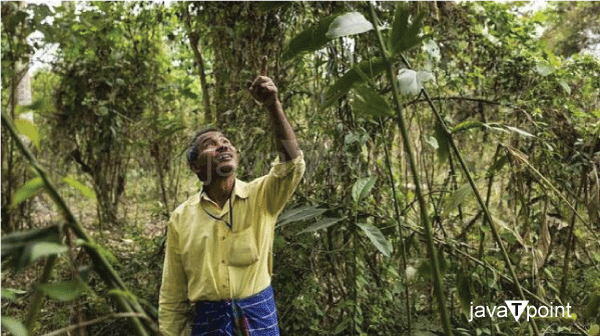
Earth Day Is Every Day: Reforestation fights climate change.According to the Earth Day Organization, the destruction of forests is the second factor contributing to global warming. About 24% of the world's greenhouse gas emissions are produced there. Around the world, 350 million people reside in or adjacent to forests. 1.6 billion people worldwide depend on wood for their livelihoods. Forests are very important to indigenous populations. A total of $75-100 billion in products and services are provided by forests each year. According to the International Union of Concerned Scientists, eighty percent of the world's terrestrial biodiversity is found in forests. Every species, including humans, must protect their environment. One of the most effective and affordable approaches to reducing carbon emissions has been thought to be combating deforestation. Forest restoration might contribute over one-third of the required global climate change mitigation by 2030. The year 2035 has been set by scientists as the cutoff date for taking action on climate change before it is too late. The international endeavor aims to rehabilitate damaged and deforested lands on 150 million hectares of land by 2020 and 350 million hectares by 2030. The sixth part of the carbon required to close the gap in emissions would be captured in this way. ConclusionAdav's narrative is so moving and motivational that it was transformed into a children's book. It describes how he sought to safeguard his island by bringing wild animals into the forest and making it their home. Vinayak Varma wrote and drew the book Jadav & the Tree Place, which is accessible through Storyweaver in several different languages.
Next TopicKanika Kapoor
|
 For Videos Join Our Youtube Channel: Join Now
For Videos Join Our Youtube Channel: Join Now
Feedback
- Send your Feedback to [email protected]
Help Others, Please Share









